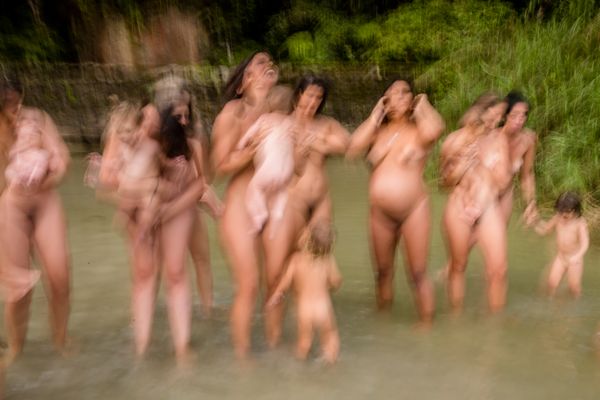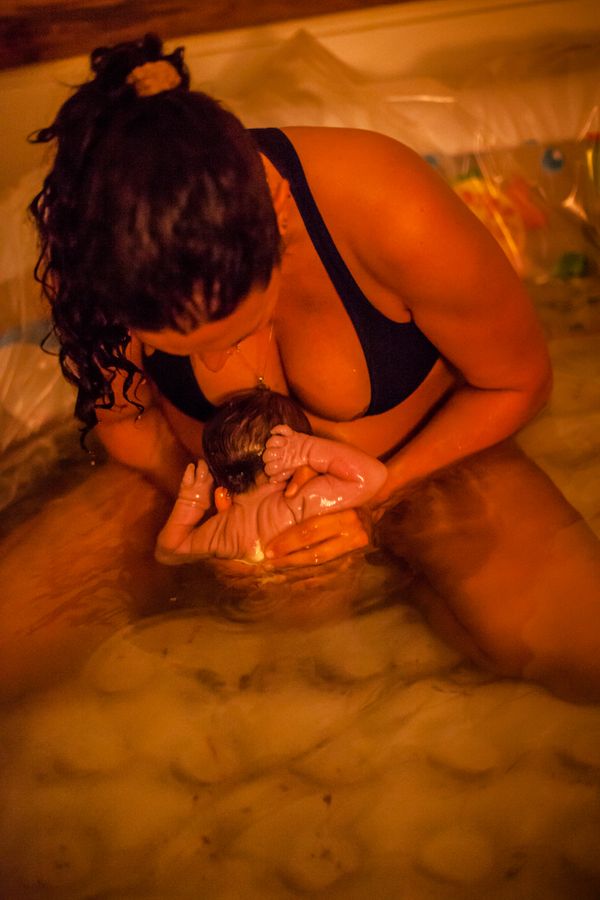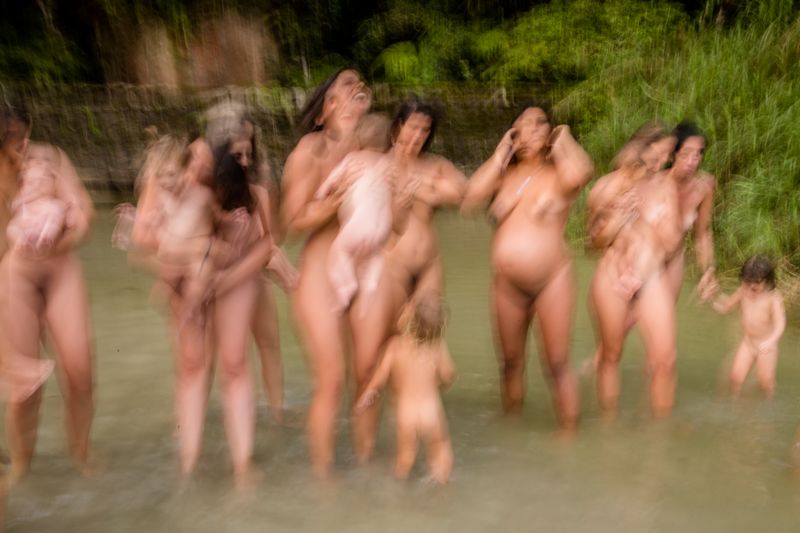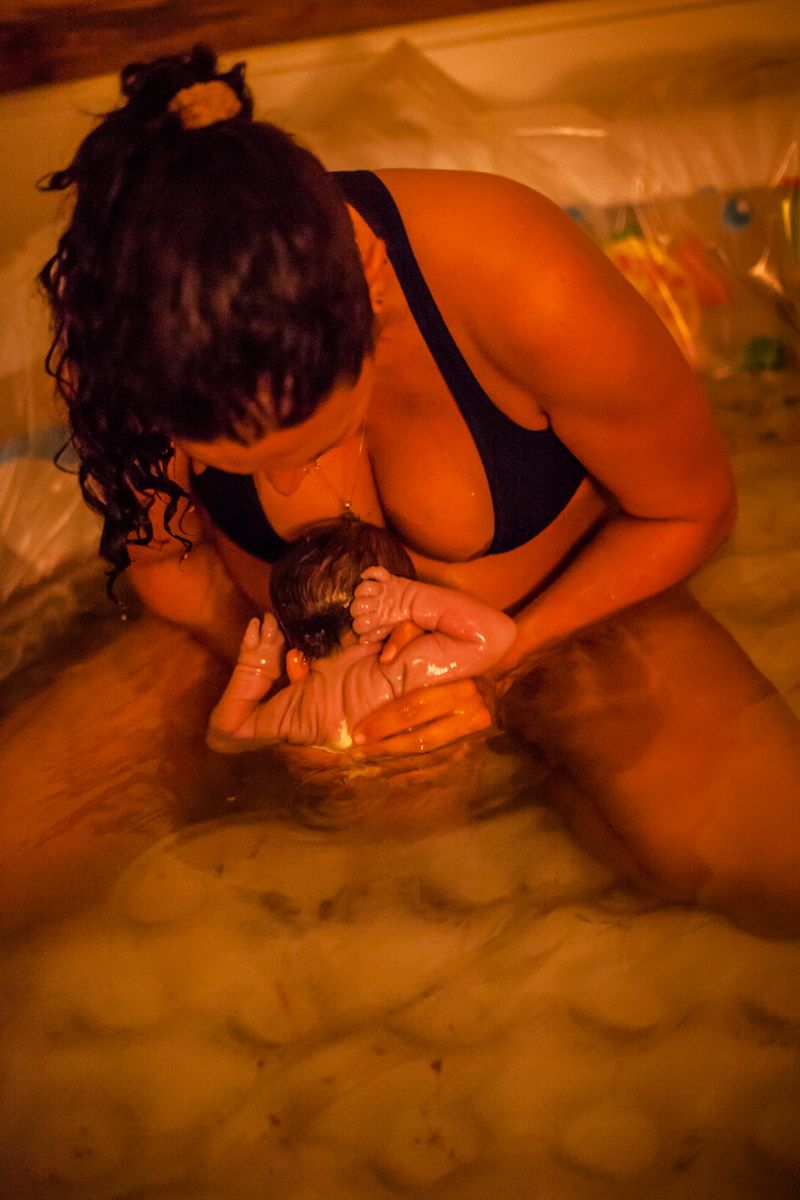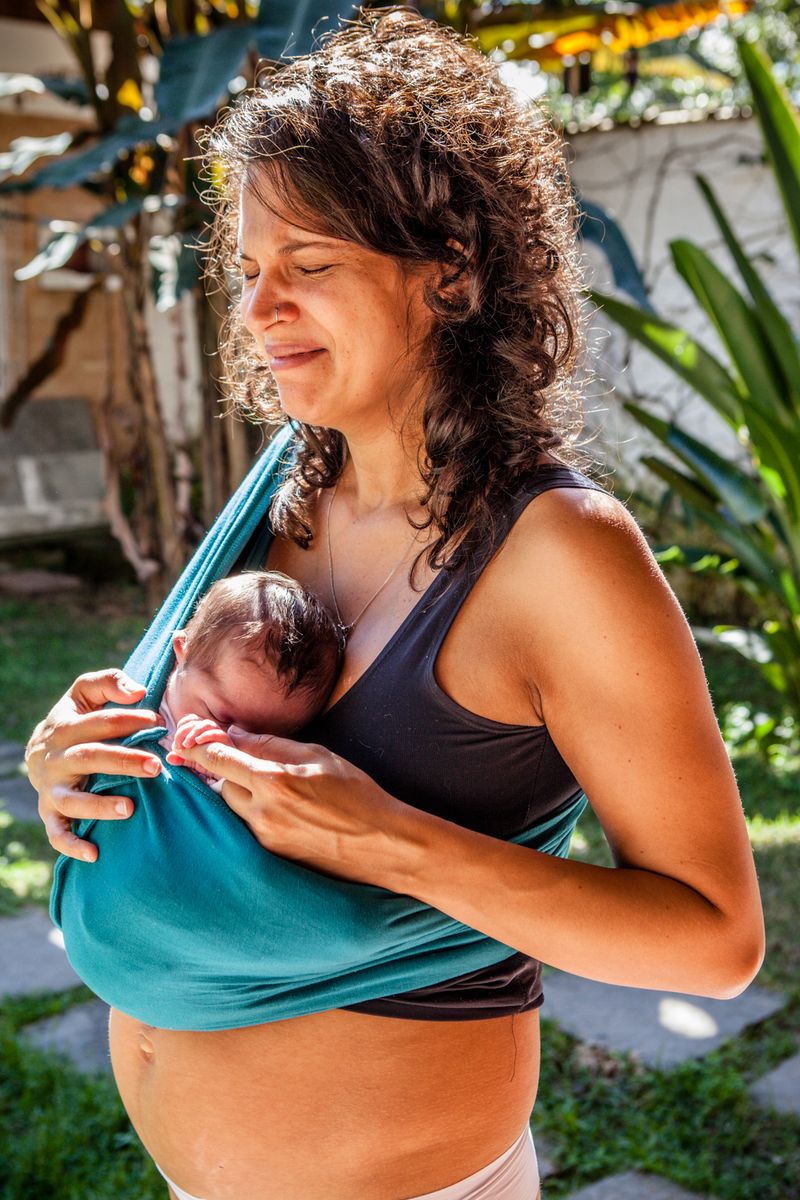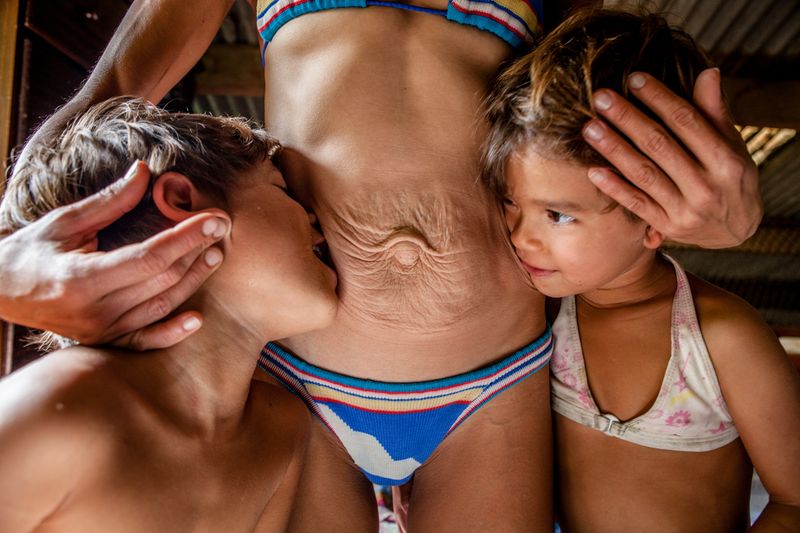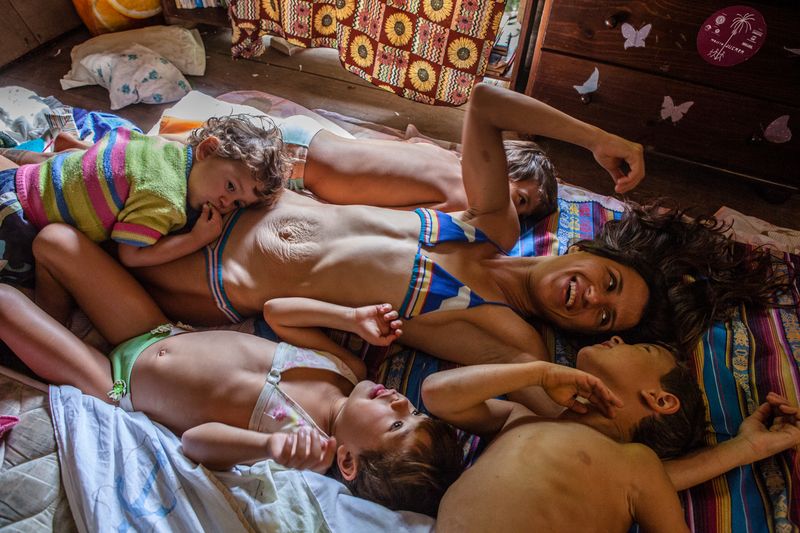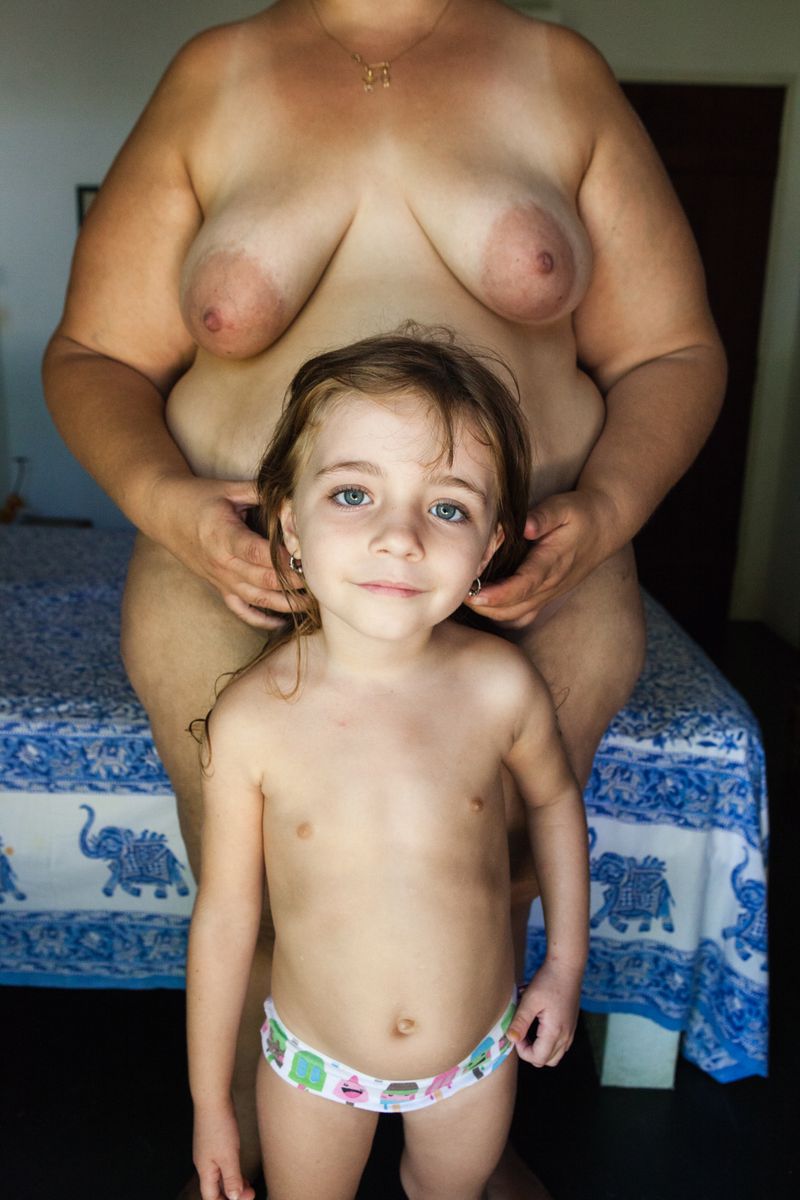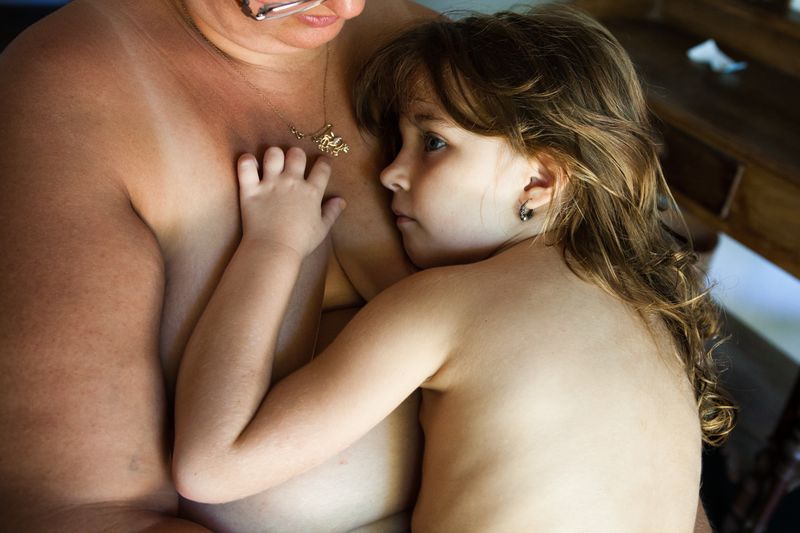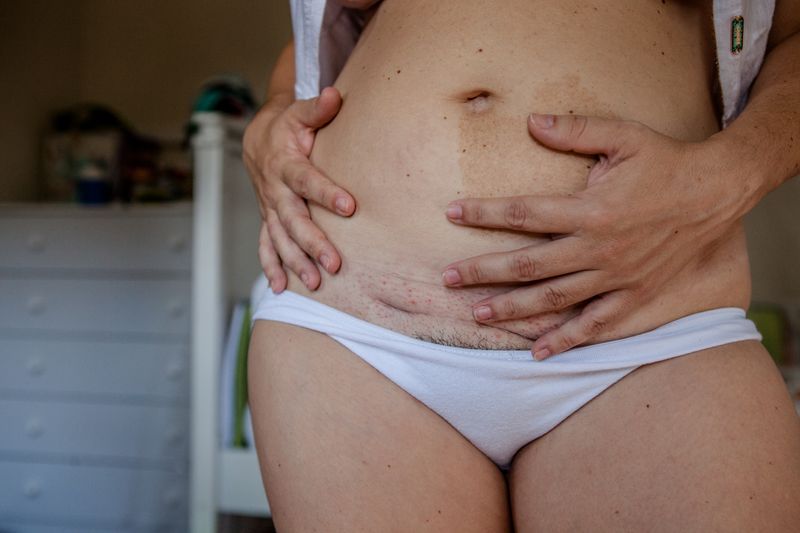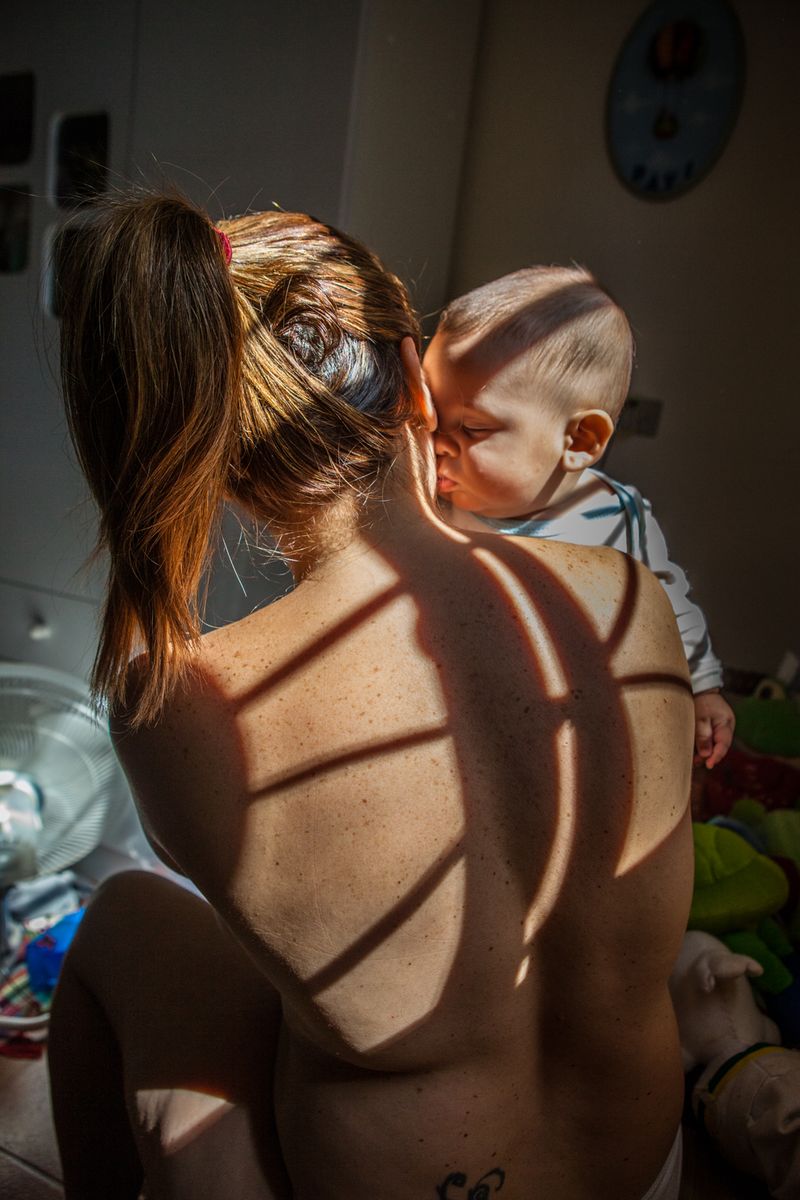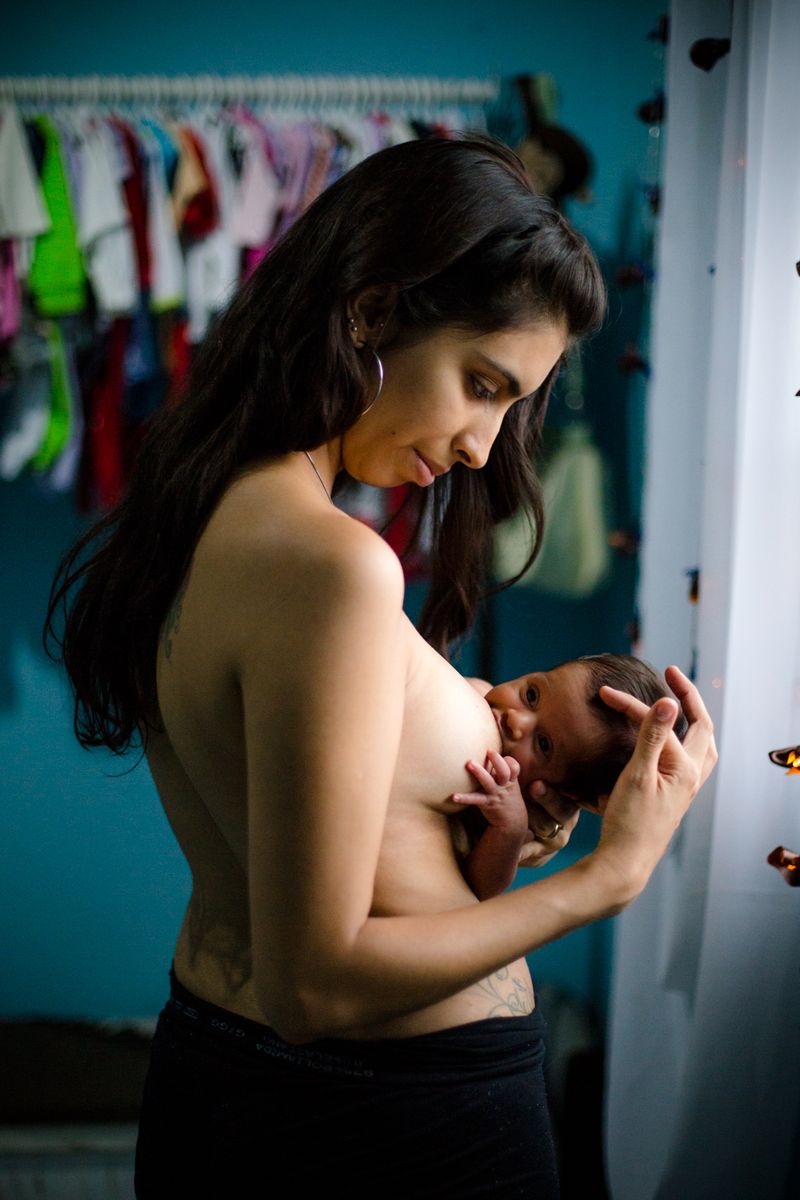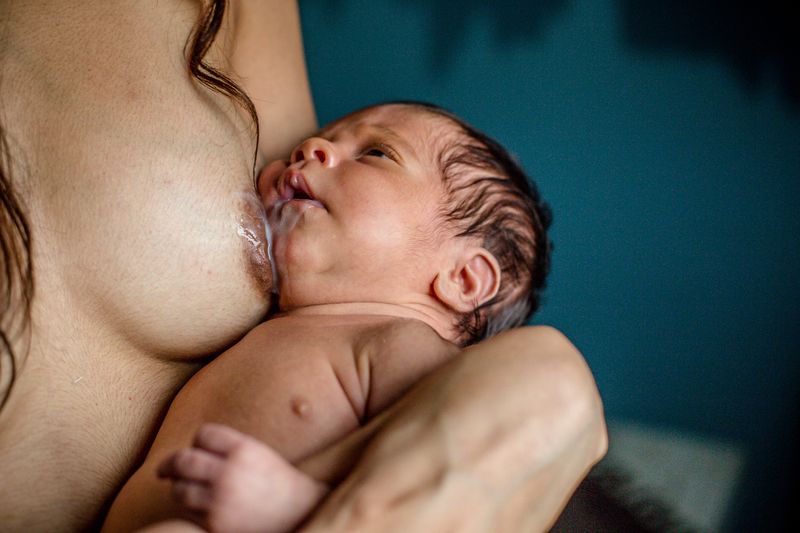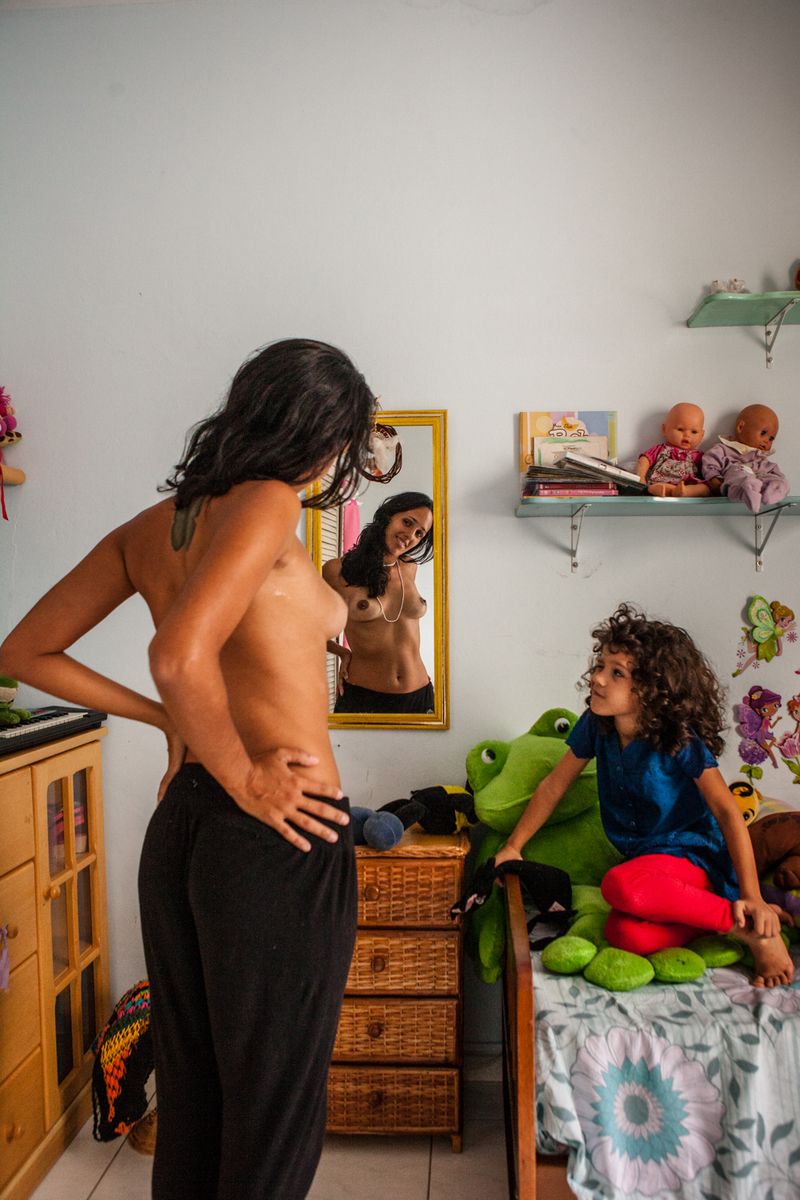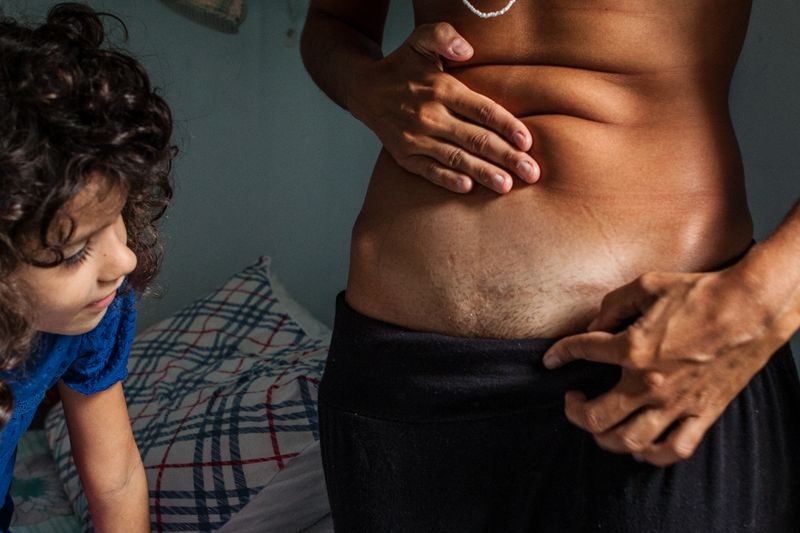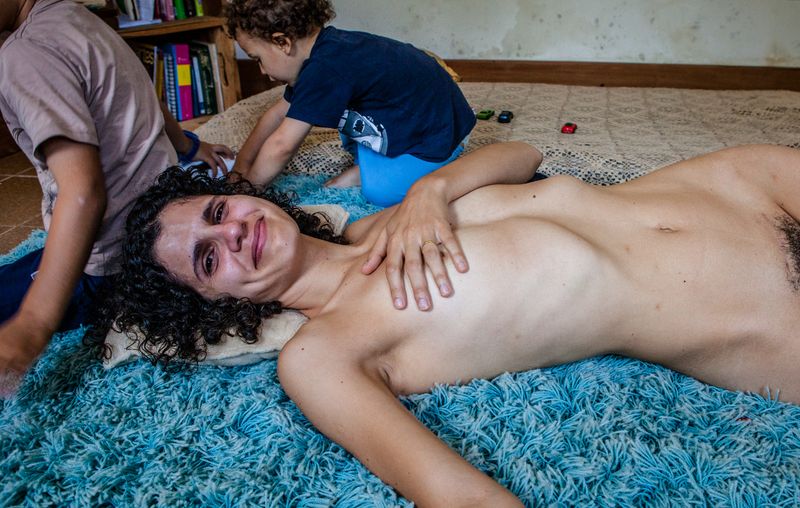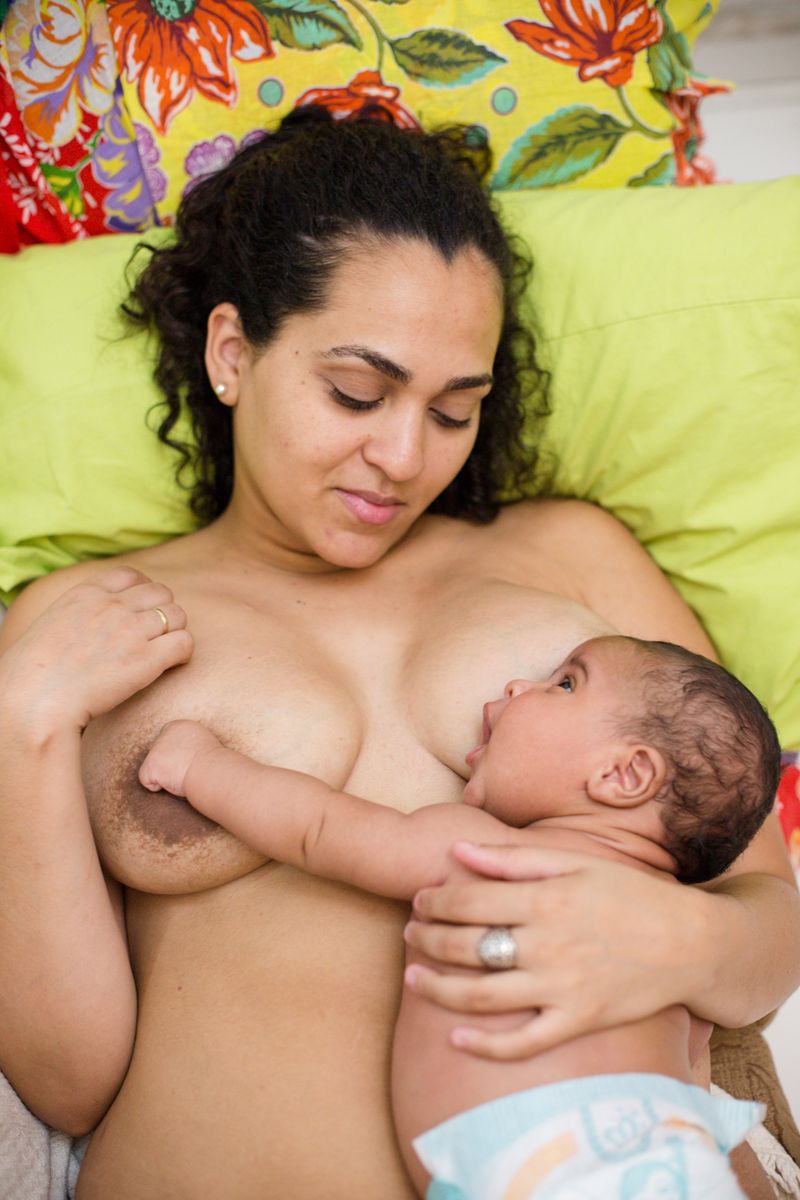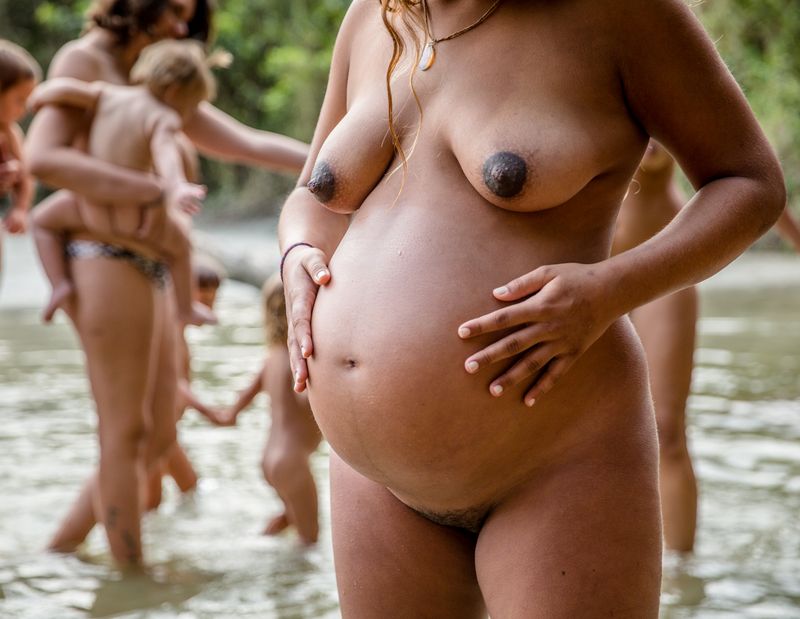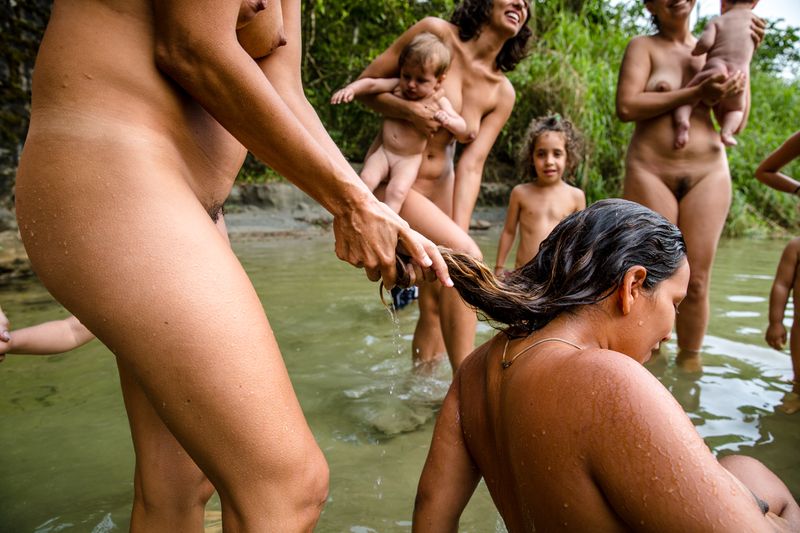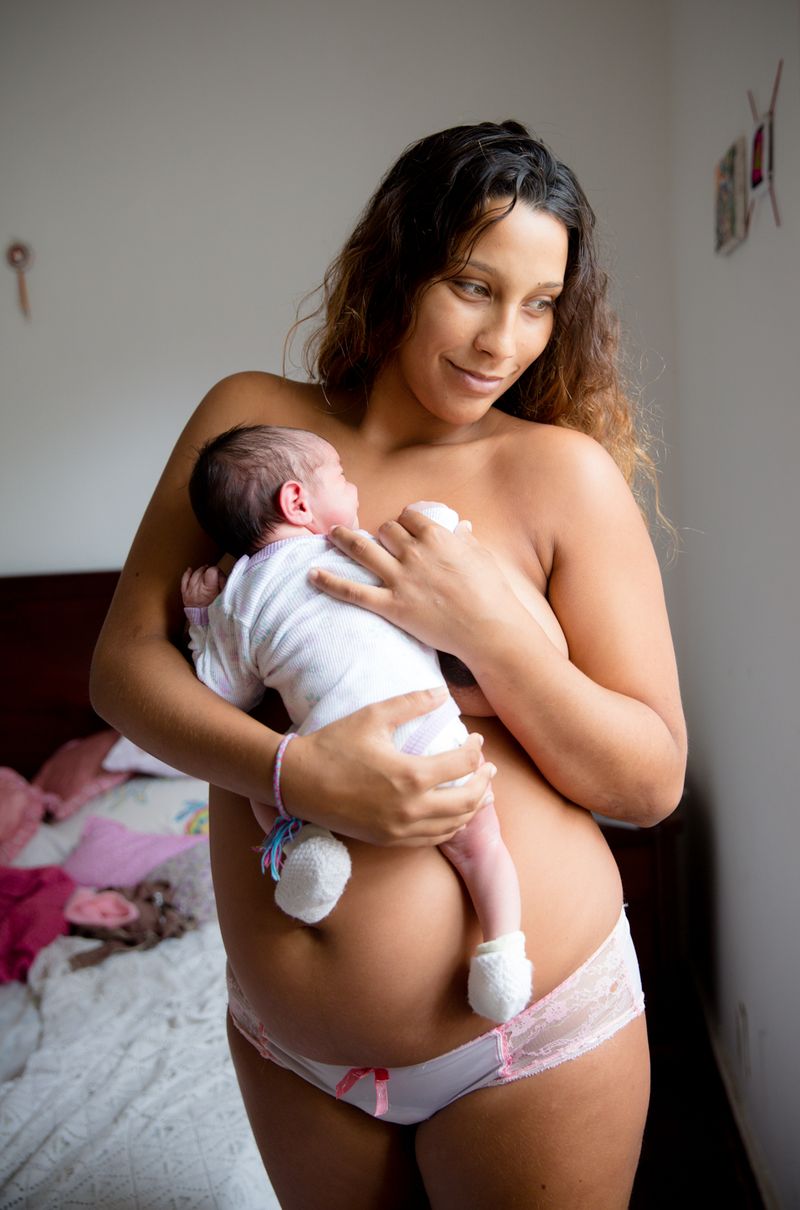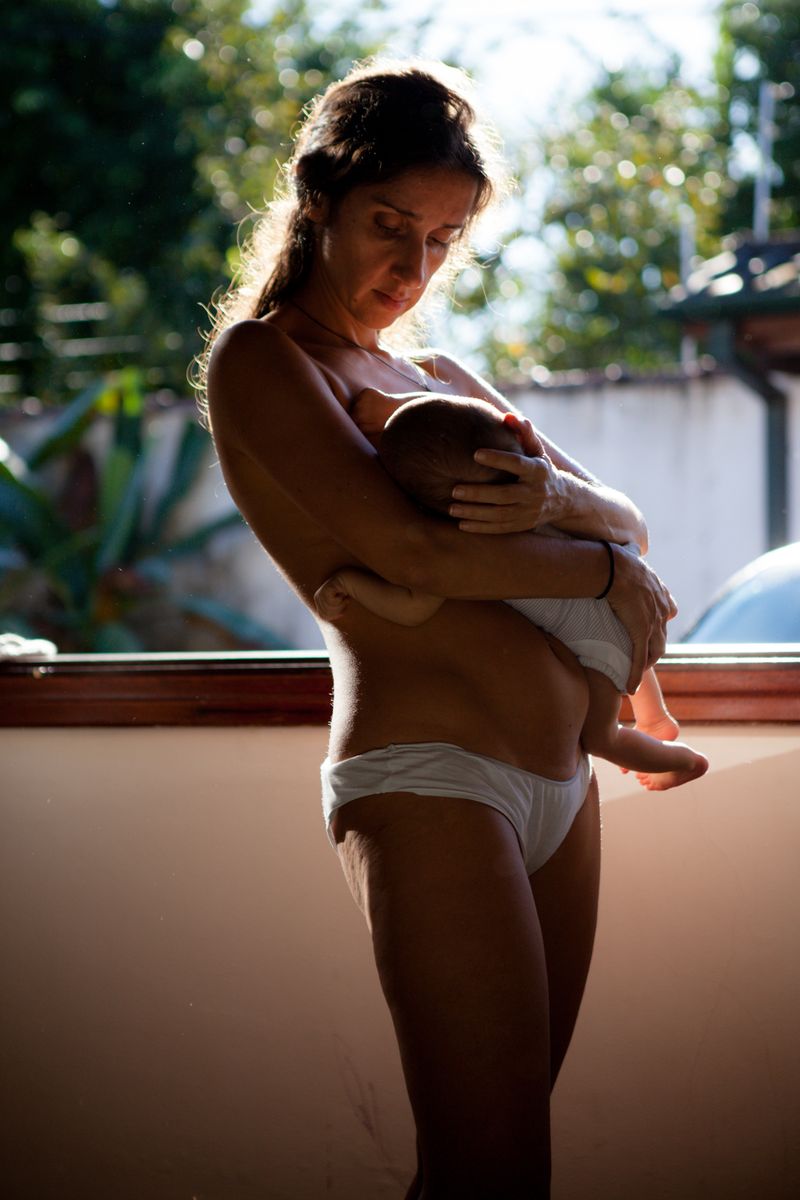BIRTH MARKS- OBSTETRIC VIOLENCE IN BRAZIL, A CONTEMPORARY HUMAN RIGHTS ISSUE
-
Dates2013 - Ongoing
-
Author
- Topics Portrait, Social Issues, Contemporary Issues
- Location Brazil, Brazil
Obstetric Violence. A Brazilian mother-to-be will be at a higher risk than any other woman in the world of suffering emotional abuse, blackmailing by her doctor, episiotomy, kristeller maneuver and caesarean without her consent, and to be denied a partner during labour.
On April the 1st, 2014 in a small town in South Brazil, 29 year old Adelir de Souza was taken by force by police from her home in middle of the night while in labour. Police officers had been ordered by court to escort her to hospital, where a c-section was then forced upon her, with no medical reason whatsoever, when she was already 9 cm dilated.
The case mentioned above was so violent that became national news, and although not unprecedented, it helped to mobilise women in a way not seen before in the country. Women started to fight for autonomy over their bodies and the right to choose the way they want to birth. But importantly to fight against an endemic yet invisible issue in contemporary Brazil, obstetric violence.
Brazil has the highest rates of cesarean deliveries in the world: around 80 to 90 % of women in private hospitals in the country give birth via cesarean section. In some hospitals that number climbs to 99 percent. In the public health system the caesareans numbers are up to 54%, and still much higher than the World Health Organisation recommended 15%. That contrasts with just over 30 % of women in the United States and 1 in 4 women in Britain.
But Brazil is also champion in "Obstetric Violence”. At least, 1 in 4 Brazilian women suffer some sort of physical and/or emotional violence before, during and immediately after labour.
A Brazilian mother-to-be will be at a higher risk than any other woman in the world of suffering emotional abuse, blackmailing by her doctor, episiotomy and caesarean without her consent, and to be denied a partner during labour. Among other abuses are, having her wrists tied to the bed, being screamed at and having a nurse climbing on her belly to force the baby out (the dangerous kristeller maneuver). Some of this violence can lead to haemorrhaging which causes lasting damaging even removal of the womb. Often she will be separated from her baby immediately after birth, sometimes for hours with no chance of skin to skin contact, against all the recommendations and trends in relation to childbirth worldwide.
Brazilian women not only feel powerless to choose a natural vaginal labour if they wish, but they are repeatedly told by doctors that a caesarean is safer. Surgical interventions during birth save lives everyday but, for low risk pregnancies, they are 5 times more dangerous for the mothers and babies. However for the doctors they are faster, more convenient for their diaries and above all profitable. In Brazil, maternal and infant death at birth has not been decreasing like in other developing countries.
In my country of birth, to have freedom of choice and respect during labour a woman has to study the subject in depth and have enough means to pay for her own chosen medical team that will protect her from “on duty” doctors. But the majority of women still get persuaded that the safest alternative is to have an elective C-Section, sometimes as early as 36 weeks, which is convenient for doctors’ diaries and pockets.
In the private health sector these operations end up financing the state of art neonatal intensive care units which need a constant number of premature babies to treat.
The commercialisation of birth is such that private hospitals offer high tech caesareans and rooms with live streaming scenes from the operating theatre so families and guests can watch in mini cinemas or streamed to computers overseas. There are special production companies which film the procedures and even catering companies which lay on canapés and champagne for guests visiting patients in the hotel like bedrooms.
The public system is of course less luxurious but the belief that a caesarean is safer and less painful, the abuse from doctors and disregard for women’s choices can be even more shocking.
Not surprisingly this is considered by many a contemporary human rights issue. And for the first time in the history of the country the Association of Attorneys of Brazil has started to investigate serious allegations and introducing “obstetric violence” as a new legal term. But this is far from a widely debated issue despite a growing group of Brazilian women, midwives, doulas and a few doctors becoming strong campaigners against the violence that permeates the country’s birthing scene.
And the situation is likely to deteriorate as a new extreme right wing candidate is about to become our president. An extremely misogynistic individual who is expected to turn Brazil into a heavily policed state. Women are scared in so many levels.
It will most probably be forbidden to get together, talk in blogs, spread information via social media, taking to the streets in the hope of alerting people and changing this or any situation.
Having had two children in the UK I never realised how hard women in Brazil have to fight for the right of a dignified labour until living back home in 2013, when I found myself pregnant for the third time. While looking for the right alternatives for my third labour I encountered many women in the same position. I learned of their fight.
I then started “Birth Marks”. A collaborative photographic portrait project that explores the relationship of mothers and pregnant women with their bodies, an intimate register of the universal transformations and marks of motherhood in the body and in the soul. In the process of photographing these women something became obviously apparent - the trauma that many of them suffered. They cry as they touch the scars of so many stolen labours, so much physical and emotional violence have marked their experiences of birth. The project’s Facebook page has thousands of followers where I not only post some of my images but have invited women to submit their own selfies and testimonials.
This prize would allow me to go back to my birth country and this time concentrate on what I believe is currently one of the most under-reported issues of contemporary Brazil. The endemic occurrence of “obstetric violence”. With a background in photojournalism, I would be able to work in a more investigative way showing the situation in private and public hospitals. Some of my resulting images would be used by women’s groups in much need to publicise such an important cause.
